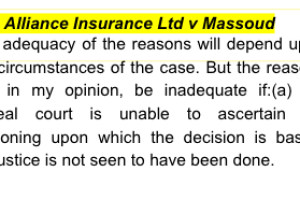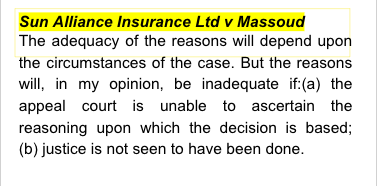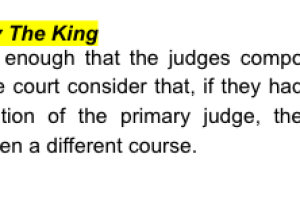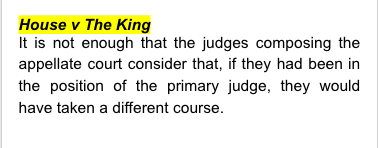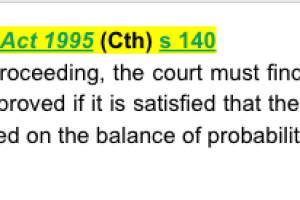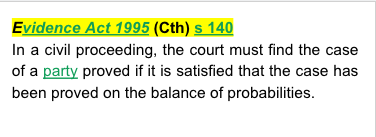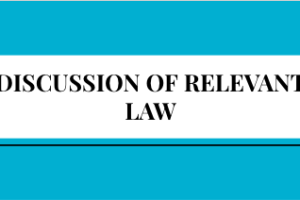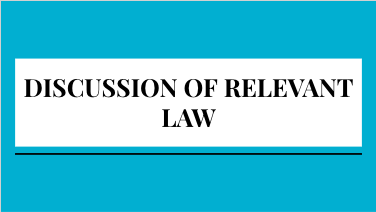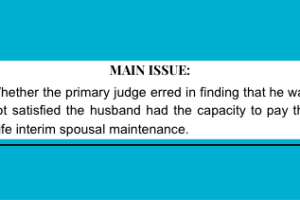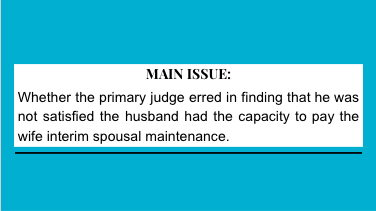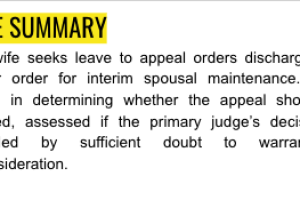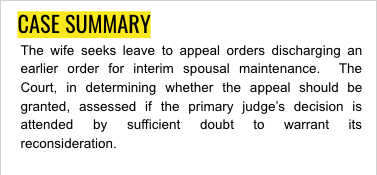- · 4780 friends
Wife Seeks Spousal Maintenance

Venter & Venter [2022] FedCFamC1A 122 (4 August 2022)

The wife seeks leave to appeal orders discharging an earlier order for interim spousal maintenance. The Court, in determining whether the appeal should be granted, assessed if the primary judge’s decision is attended by sufficient doubt to warrant its reconsideration.

Facts:
The parties commenced a relationship in 1983, married in 1985, and separated in mid-2017, after a relationship spanning approximately 35 years. The husband has remarried, but the wife has not. The parties have three adult children; Mr. B Venter, Mr. C Venter, and Ms. Glynn, all of whom are parties to the wife and husband’s substantive proceedings for property settlement.
The wife and husband operated a number of businesses together. After some years, they proved unsuccessful and subsequently, both the husband and the wife became bankrupt. During 2007, the husband and wife established what has proven to be a profitable business. Mr. B Venter (who was then 19) was appointed the sole director and shareholder of the corporation which operated the business, as the bankruptcy of the wife and husband precluded them holding the required licences.
In or around June 2016, that business underwent a restructure and a number of entities were formed known as the “D Group”. Neither the wife nor husband hold any legal interest in the D Group and the interests are largely held by Mr. B Venter and Mr. C Venter, who are directors of the ultimate holding company of the D Group. Upon separation, the wife received weekly funds from the D Group; initially at $1,068 per week, but increasing to $2,200 per week from September 2020. The wife initiated the property settlement proceedings in August 2021.
On 19 October 2021, the weekly payments to the wife ceased, and the wife filed an interim application for spousal maintenance on 28 October 2021. The wife’s spousal maintenance application was heard by a Senior Judicial Registrar resulting in orders being made on 16 December 2021 for the husband to pay the wife interim spousal maintenance of $2,200 per week and her health insurance premiums. By his Application for Review filed on 4 January 2022, the husband sought to review the Senior Judicial Registrar’s orders, which came before the primary judge for hearing in January 2022. Upon review, the primary judge discharged the orders made by the Senior Judicial Registrar on 16 December 2021, dismissed the wife’s application for spousal maintenance, and reserved the parties’ costs to trial.
The wife had not persuaded him that, on the balance of probabilities, the husband had the capacity to pay spousal maintenance to the wife. The wife appeals such orders.

Issue:
Whether the primary judge erred in finding that he was not satisfied the husband had the capacity to pay the wife interim spousal maintenance.

Applicable law:
Evidence Act 1995 (Cth) s 140 - provides that in a civil proceeding, the court must find the case of a party proved if it is satisfied that the case has been proved on the balance of probabilities.



Analysis:
The primary judge had regard to the history of payment of maintenance. The evidence before the primary judge established that S Pty Ltd had a net worth of $1,383,011 if alleged impaired assets of $1,404,949.61 were ignored (husband’s affidavit filed 7 December 2021, paragraph 20 and exhibit Mr Venter2). Leaving aside a relatively small sum in a bank account, the assets of S Pty Ltd, impaired or otherwise, entirely comprised loans. From them, it derived an income of $1,600 per week (husband’s affidavit filed 7 December 2021, paragraph 19).
In addition to the weekly dividends of $6,100, S Pty Ltd had been also paying $25,209 per month to the ATO, to reduce a tax liability of about $233,000 (husband’s Financial Statement filed 9 November 2021, page 12). The source of the deficiency between S Pty Ltd’s $1,600 income and its vastly larger outgoings was, and could only be, the D Group, and most likely a particular company called R Pty Ltd (“R Company”), given the evidence that R Company loaned considerable monies to S Pty Ltd over the relevant period. However, as to whether the prospect of further such loans in the future represented a capacity of the husband to pay the wife's spousal maintenance, the unchallenged evidence was that, if any part of the monies which the D Group deployed to either the husband or his entities was used to pay spousal maintenance to the wife, then Mr. C Venter would not only cease all such payments, but also seek the repayment to R Company of all monies loaned to S Pty Ltd.
Conclusion:
Leave to appeal is refused. The Amended Notice of Appeal filed on 10 June 2022 is dismissed.
Within 28 days of the finalisation of proceedings BRC 10651 of 2021, the applicant is to pay the respondent’s costs in the sum of $30,000.


